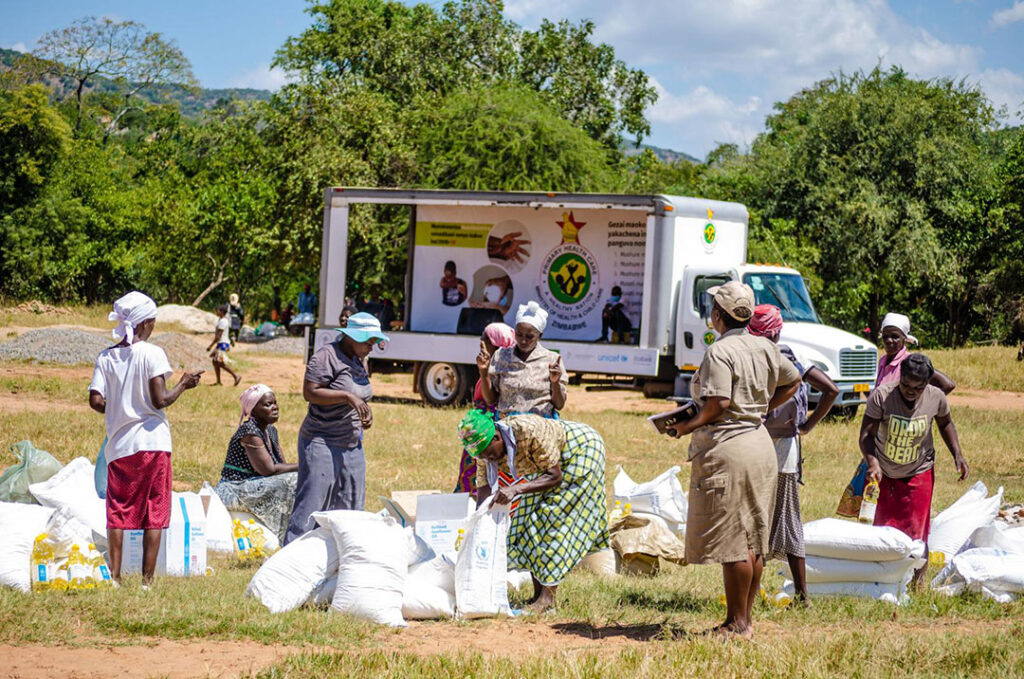ADF STAFF
Trucks typically used to advertise popular products such as Coca-Cola are being used to promote social distancing and hygiene awareness in Zimbabwe, as the landlocked Southern African country tackles the spread of COVID-19.
The awareness campaign, which has reached 2.3 million people since March, is the result of a partnership between GOAL Zimbabwe, an international humanitarian response organization, and Promobile Africa, a mobile marketing and advertising company. The effort, which features six trucks that can effectively reach vulnerable communities during lockdown, targets urban and rural areas, including Harare, the nation’s capital; Mutare; Marondera; and Chipinge.
Members of the organizations team up to advise people about governmental policies on lockdowns and movement restrictions and to hear residents’ needs. They often visit feeding stations to ensure that people are washing their hands and observing social distancing. They use microphones to repeat instructions to those waiting in line.
Such measures are crucial in Zimbabwe, where just under 57% of the country’s nearly 14.9 million people had internet access at the end of 2019, meaning that huge swaths of the population might not regularly receive information related to the deadly pandemic.
COVID-19’s impact could be especially dire due to a severe drought that has led to critical food shortages, leaving millions of people facing starvation. Zimbabwe’s youngest residents are among the hardest hit because more than 70% of children in the country’s rural areas live in poverty.
Accordingly, members of the campaign also distribute food as they raise awareness of COVID-19.
UNICEF has provided technical and financial help to the effort. Aidan Cronin, UNICEF’s chief of Water, Sanitation and Hygiene, said it’s critical for those living in the nation’s poorest areas to receive information about hand-washing and social distancing.
“Providing safe water, sanitation and hygienic services is essential to protecting human health during all infectious disease outbreaks, including COVID19,” Cronin said in a report on unicef.org. “I am delighted that through GOAL, we have managed to provide people with critical information on handwashing and other hygienic requirements that mitigate against this highly infectious disease.”
As of August 3, COVID-19 had sickened nearly 4,200 Zimbabweans and killed 81, according to the Africa Centres for Disease Control and Prevention. Infections in the country have surged recently.
Zimbabwean President Emmerson Mnangagwa ordered a renewed lockdown in late July, including a curfew from 6 p.m. to 6 a.m., and restricted nonessential businesses to an 8 a.m. to 3 p.m. workday.
“All nonworking sections of our population will be required to stay at home, except for securing food, water and health services,” Mnangagwa said in a national address.

